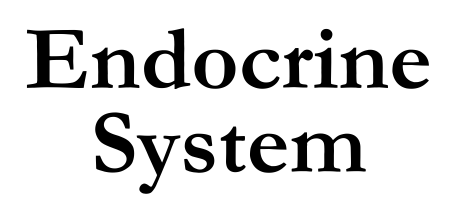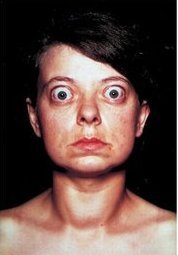
What regulates your hunger and thirst? What controls the body temperature? What brings about the changes in growth and metabolism? It is the hormones, isn’t it? And it is the Endocrine System that governs these hormones. The Endocrine System not only helps the body to build resistance to disease but also controls human behaviour and is responsible for our sleep. Over 30 hormones in the body are controlled by the Endocrine System.
‘Endocrine’ is derived from the Greek word ‘endo’ which means ‘within’ and ‘crine’ which means ‘secrete’. Endocrine System is responsible for the secretion of certain glands within the body. It is this series of glands which enable the hormones to regulate metabolism, growth and development, tissue function, sexual function, reproduction, etc. The Endocrine System controls almost every cell, organ and function of the body. In order to ensure that the body functions systematically, the Endocrine System works with the nervous system for the processes like faster breathing and controlled body movements.
Endocrine System includes:
-
Hypothalamus: Hypothalamus is the main link between the Endocrine System and the Nervous System and is located in the lower central part of the brain. They are a collection of specialized cells that help and control the pituitary gland and produce chemicals that stimulate or suppress hormone secretions.
-
Pituitary: The size of the pea, pituitary gland produces the hormones and controls the other glands of the body. Hence it is considered as the ‘master gland’. It is located at the base of the brain beneath the hypothalamus.
-
Thyroid: The shape of the Thyroid is like a bow tie or a butterfly and it is located in the front part of the lower neck. It produces the Thyroid hormones, thyroxine and triodothyronine which control the rate at which the cells get burnt from the food that we eat to produce energy.
-
Parathyroids: The four tiny glands that are attached to the thyroid and function together are called the parathyroids. They are responsible for the release of the hormone that regulates the level of calcium in the blood along with calcitonin.
-
Adrenal Glands: The Adrenal glands are the two triangular glands located one on top of each kidney. Divided into two parts, each part produces a set of hormones having different functions. The outer part, also known as corticosteroids influences the regulation of salt and water balance in the body, response to stress, sexual development and function. The inner part, also known as, adrenal medulla produces catecholamines like epinephrine which increases blood pressure.
-
Pineal: Located in the middle of the brain, it secretes melatonin that helps to regulate the sleep at night.
-
Reproductive Glands: The gonads are the main source of sex hormones. The male gonads, also called as testes, are located in the scrotum. They secrete testosterone that distinguishes the changes associated in the male body like puberty, penis and height growth, deepening throat and growth in pubic and facial hair. There are ovaries in the females. Located in the pelvis, it produces eggs and secretes the hormone estrogens, when the girl reaches her puberty.
-
Pancreas: Although a part of the digestive system, this glandular organ helps the Endocrine System to produce and secrete digestive enzymes. The two important hormones produced by the pancreas are insulin and glucagon that maintain the steady level of glucose in the blood to store the energy.

The Endocrine System helps the body to produce and secrete chemicals. The glands are responsible to select and remove materials from the blood, to process them and secrete the finished chemical product for use in the body. The Endocrine System, similar to the nervous system, sends signals throughout the body and the hormones are released into the bloodstream where the tissue elicits a response. They are vascular and ductless and use intracellular vacuoles, or granules to store hormones.
Abundance or lack of hormones can prove to be harmful for the body and may lead to certain diseases:
-
Adrenal Deficiency: The adrenal glands produce corticosteroids. However if it does not produce enough corticosteroids, it leads to Adrenal Deficiency. Its symptoms are weakness, fatigue, abdominal pain, nausea, dehydration and changes in the skin.
-
Type 1 Diabetes: Also known as Juvenile Diabetes, it occurs when the pancreas does not produce sufficient insulin. It is an autoimmune disorder that attacks the immune system and destroys the cells of the pancreas which produces insulin.
-
Type 2 Diabetes: This is caused when the body does not respond to the insulin. It is related to the hereditary factors which includes poor diet, lack of physical activity and obesity. Growth Hormone Problems: Too much of the growth hormones may lead to gigantism and is usually caused by the pituitary tumour which can be treated by removing it. The vice versa happens when the body does not produce enough growth hormone and this leads to dwarfism.
-
Hyperthyroidism: When the levels of the thyroid hormones are very high in the body, it leads to Hyperthyroidism. Generally it is caused by the Graves’disease among the kids and the teens where the thyroid glands become very active.
-
Hypothyroidism: Unlike Hyperthyroidism, it is a condition in which the hormones in the blood are very low. It may lead to fatigue, a slow heart rate, dry skin, weight gain and constipation.



